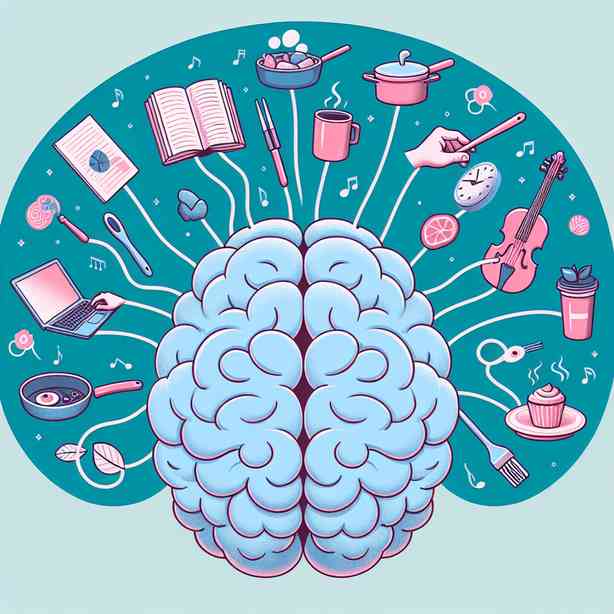
Multitasking has become a common practice in our fast-paced world, where people often juggle multiple tasks simultaneously, hoping to increase their productivity and efficiency. However, scientific research has consistently demonstrated that this approach is not only ineffective but can also be detrimental to our cognitive abilities, causing a variety of issues including stress, reduced productivity, and even damage to our brains over time. Understanding the nuances of multitasking is essential to recognizing its potential pitfalls and optimizing our mental capabilities.
At its core, multitasking is the process of engaging in two or more tasks at the same time. While it may feel like we are accomplishing more, the reality is that our brain operates sequentially rather than simultaneously. When we attempt to multitask, we are essentially switching our focus back and forth between tasks, which can lead to a significant decrease in overall efficiency. This task-switching can disrupt our cognitive flow, making it harder to fully engage with any single task.
The science behind multitasking highlights the limitations of our working memory. Our brain can only hold a limited amount of information at once, typically around seven pieces of data. When we multitask, we overload our working memory, resulting in poorer information retention and comprehension. Studies have shown that individuals who frequently multitask have reduced attention spans and find it harder to concentrate on important tasks. This inability to focus deeply is not only problematic in academic or professional settings but can also impact our daily lives, leading to mistakes, misunderstandings, and a general sense of being overwhelmed.
Moreover, multitasking can contribute to increased stress levels. As we juggle various demands on our attention, our brains are constantly in a state of alertness, which activates the body’s stress response. Prolonged periods of stress can lead to a range of health issues, from anxiety and depression to physical ailments such as headaches or digestive problems. This cycle of stress and multitasking can create a detrimental feedback loop, where the more we attempt to do at once, the more stressed we become, ultimately leading to decreased effectiveness in completing tasks.
There’s also a cognitive cost associated with multitasking that compounds over time. Frequent multitaskers can suffer from a phenomenon known as “task saturation.” When this occurs, the brain becomes overwhelmed with competing information, leading to slower information processing and a decrease in problem-solving skills. The mental fatigue associated with multitasking can diminish creativity and innovation, as our brains struggle to make meaningful connections when dispersed across multiple tasks.
Breaking the habit of multitasking involves a conscious effort to prioritize focused work. The Pomodoro Technique, for example, encourages individuals to work in short, focused sprints of around 25 minutes, followed by a short break. This approach allows time for the brain to recharge and helps maintain focus. Another effective strategy is setting clear boundaries around distractions, like silencing notifications during work periods. By creating an environment that fosters concentration, we can enhance cognitive performance and improve overall productivity.
It’s important to note that while multitasking has its downsides, some individuals may believe they are exceptions to the rule. However, research shows that even those who consider themselves proficient multitaskers often perform worse than their single-tasking counterparts. This overconfidence in one’s ability to multitask can lead to a disregard for the negative impacts on attention and efficiency, perpetuating a cycle of decreased performance and increased stress.
Additionally, the rise of technology has only compounded the effects of multitasking. With smartphones and computers at our fingertips, tasks such as responding to emails, texting friends, and browsing social media can easily distract us from more important responsibilities. The constant influx of information can fragment our attention, making it increasingly challenging to focus on a single task. This encourages a culture of distraction, where the expectation to be constantly connected can hinder our ability to engage deeply with our work or personal projects.
In an academic setting, the drawbacks of multitasking become even more pronounced. Students who attempt to study while watching television or browsing social media report significantly lower retention rates and understanding of the material. This fragmented approach to learning can result in poor grades, increased anxiety about academic performance, and a lack of meaningful engagement with course content. Therefore, creating an environment conducive to focused study is essential for effective learning.
To combat the detrimental effects of multitasking and its impact on cognitive function, cultivating mindfulness can be a powerful tool. Mindfulness practices, such as meditation, encourage us to focus on the present moment and reduce the mental clutter that often accompanies multitasking. By training our minds to be more present and attentive, we can enhance our cognitive abilities and reduce the urge to split our focus.
Ultimately, the key takeaway is that while multitasking may seem like an efficient way to get more done, it can have serious consequences for our cognitive functioning and overall well-being. By recognizing the limitations of our brain and the negative impacts of multitasking, we can adopt healthier habits that promote focus and productivity. Instead of attempting to juggle multiple tasks at once, let us embrace the power of single-tasking, creating a more fulfilling and productive work environment.
In conclusion, the misconception that multitasking enhances productivity is one that needs to be challenged. Emphasizing the importance of focus, creating conducive environments for deep work, and practicing mindfulness can drastically improve cognitive performance. By moving away from multitasking, we can not only enhance our efficiency but also protect our mental health and cognitive abilities in the long run. This shift in perspective may be the key to unlocking our full potential and fostering a healthier relationship with our work and personal lives.


